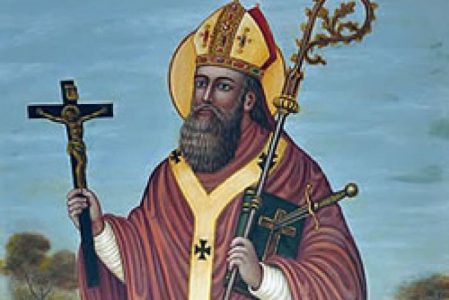St. Boniface, an English missionary and reformer, was born in 675 in Southern England and was baptized with the name, Wynfrith, which means “Friend of Peace.” He is one of the most famous saints in Germany and the Netherlands where he played a significant role in planting new churches and monasteries; and also ensured that the political authorities and rulers became firmly committed to Christianity.
Wynfrith entered a monastery at Nursling, near Southampton, and was ordained a priest at about age 30. His passion for foreign mission led him to the Netherlands in 716; however, the hatred of the pagans was a major obstacle in his ministry, and some months later, he returned to England.
Two years later, he set off for Rome to seek the blessing of Pope Gregory II, who gave him the new name “Boniface.” In 722, he was consecrated by the Pope as Bishop of the whole of Germany, to the east of the Rhine, and six years later, he was made Archbishop of all Germany.
At the age of almost 80 years, he set out with 52 companions on an evangelistic mission to the Netherlands where his first efforts had failed nearly 40 years earlier. At Pentecost, on June 5,755, they were all massacred by a band of heathens as Boniface read the Scriptures to new converts. He himself, was struck down by a sword which pierced the Bible he had raised to shield his head.
As requested in his Will, the body of Boniface was taken back to the monastery he founded at Fulda, in central Germany, where a magnificent Cathedral now encloses his tomb, and where the Roman Catholic Bishops of Germany hold their meetings every year.
St. Boniface Churches in our Diocese
- Harbour View, Kingston
- Pondside, St. Elizabeth
- Mount Industry, St. Catherine
- Whitehall, St. Thomas
Prayer of St. Boniface
Eternal God, the refuge and help of all your children,
we praise you for all you have given us,
for all you have done for us,
for all that you are to us.
In our weakness, you are strength,
in our darkness, you are light,
in our sorrow, you are comfort and peace.
We cannot number your blessings,
we cannot declare your love:
For all your blessings we bless you.
May we live as in your presence,
and love the things that you love,
and serve you in our daily lives;
through Jesus Christ our Lord.
Amen.


